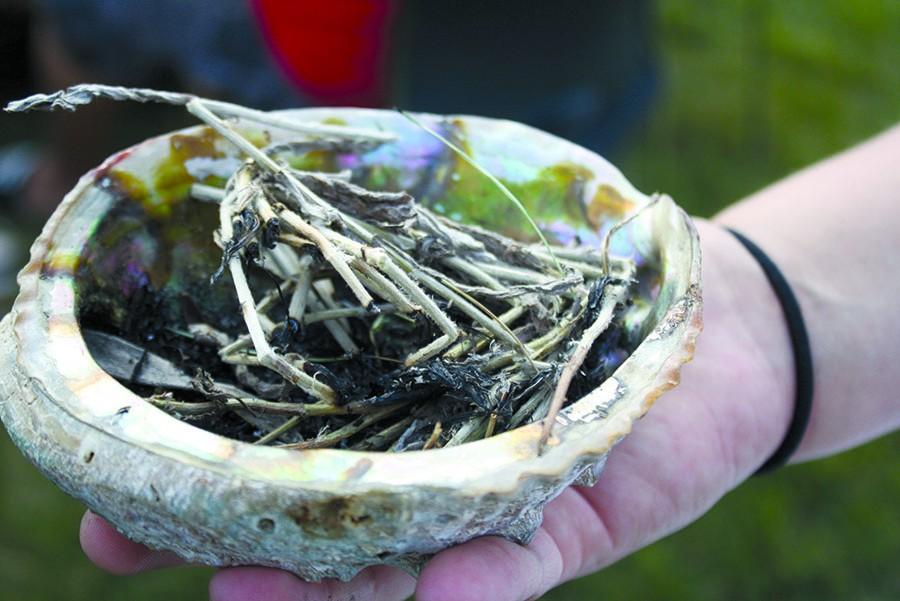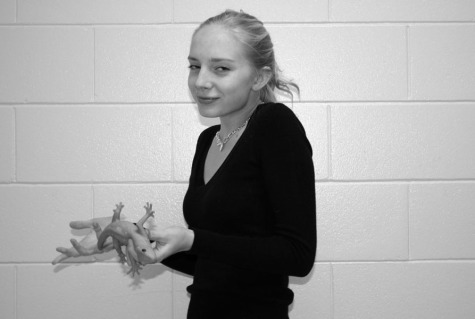Smudging helps students stay on track
An All Nations student holds an abalone shell filled with sage in preparation for smudging at the back-to-school Welcoming Ceremony in 2013. Students in the program can participate in smudging daily before school.
November 19, 2015
Every morning at 8:15, ten to twenty All Nations students gather in room 119 to smudge. They all form a circle after the All Nations coordinator, Bezh Butler, walks in the room and greets them in Ojibwe. After giving some announcements and checking in with the students, Butler lights the sage in an abalone shell and hands it to a student to bring around the circle. Students take turns wafting the smoke onto themselves. First, they wave the smoke towards them, then up their body and then down. The whole process takes about 8 minutes, and students are sent to their first hours with a smudge pass.
Smudging is a traditional Native American practice of burning sacred herbs, such as sage, to produce a smoke cloud. The smoke is used to cleanse the body, mind, and spirit of negative spirits or vibes. It can also be used to cleanse places or homes, as well as used to bless and energize people.
“Without smudging the All Nations program would be a lot sicker,” says Butler. He says that smudging is a big resource for Native students and that he wishes it could be more available to students.
And to students two years ago, the program was very sick.
In March 2013, All Nations students filled South’s auditorium and TV screens to protest for their right to a more well-rounded, culturally based curriculum. Around the time of the protest, All Nations students weren’t allowed to drum, smudge, or partake in cultural events inside the building, as they were seen as a disturbance to the school.
Students within the All Nations program, as well as students in other programs rallied to bring awareness of the lack of cultural representation at South and in the All Nations program. The protest began as a cultural demonstration within the building, with the cooperation of administration, but turned into a walkout when student leaders realized some students weren’t being allowed into the auditorium and teachers weren’t displaying the footage of the protest in classes. 700 students walked out that day.
Fast forward to today, the district and South have responded to the work of student leaders and community activists, to incorporate more Native culture into the All Nations program. Recently, the district installed a ventilation system into room 119, so that students are able to smudge without harming kids who have allergies to smoke.
“Smudging helps spiraling students get back on track,” says Butler. In the future, he hopes that smudging will be available at least 3 times a day, in the morning, in the middle of the day, and at the end of the day.







